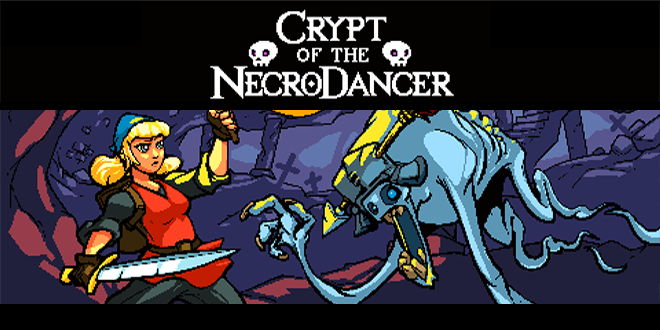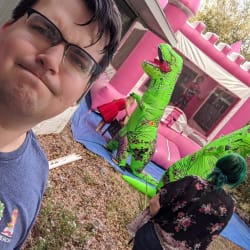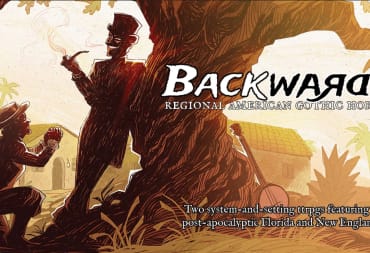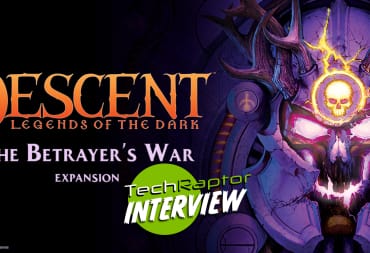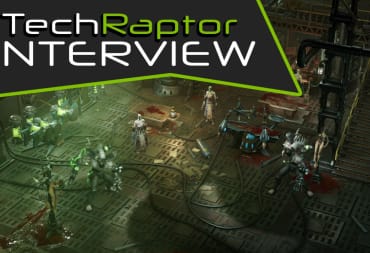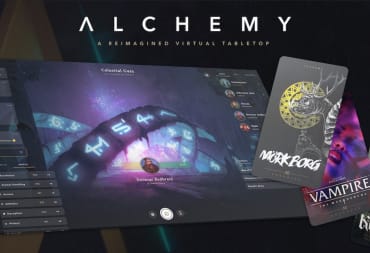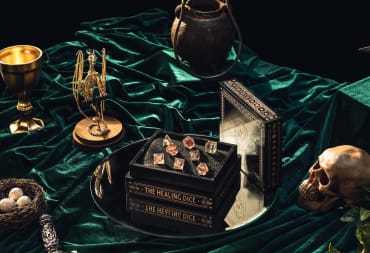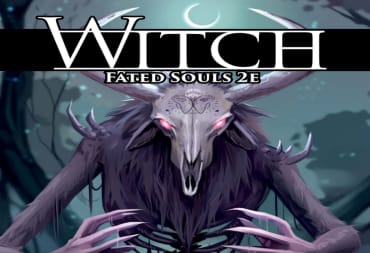Summer Games Done Quick (SGDQ), a yearly week long speedrunning marathon, ended last week raising almost $1.3 million for Doctors without Borders. With plenty of games ranging from Super Mario Sunshine to Two Worlds, there was something for everyone to watch. I had a chance to talk with SpootyBiscuit and MudJoe2, two runners of rhythm-based roguelite Crypt of the Necrodancer, about their speedrunning experiences and their time at SGDQ. Last year SpootyBiscuit showed off the Coda game type of Crypt of the Necrodancer, and this year both SpootyBiscuit and MudJoe2 faced off in a race against one another to be the first to complete Cadence All Zones with a seeded run.
https://www.youtube.com/watch?v=X3a3EcSZeZs TechRaptor: What got you into speedrunning? Was there a certain runner that you saw on Twitch, a game you were interested in, or was it even because of Games Done Quick?
SpootyBiscuit: There are actually two ways I can answer this question. As far as the modern speedrunning community is concerned, I first became interested in it after watching VODs of the Games Done Quick marathons. That said, my very first speedrunning endeavors were actually about 20 years ago as a small child. I recall trying to beat Super Mario Bros. 2 in under 30 minutes, as well as discovering useful speedrunning glitches in Gizmos and Gadgets, an educational game on the grade school computers. Some of us were just born to go fast, I suppose!
MudJoe2: If you mean specifically what got me into speedrunning NecroDancer: it was probably the streamers ComradeNugget and Fubzo. At the time NecroDancer was still in Early Access, and when I would stream (awful gameplay of) it, they would offer tips and suggestions, and from there I ended up watching their streams a lot to get a grasp on how the game worked.
If you mean in general: I think I randomly ended up tuning into Cransoon doing LADX 100% a few years back. I really love that game and it was cool to see it broken so skillfully.
TR: Where did you get your start in video games? What kinds of games did you primarily play?
SB: As mentioned above, I've been gaming since I was a child! My family owned both an NES and SNES, and I=my whole family made pretty heavy use of both of them. Fierce matches of Dr. Mario, Tetris Attack, and Yoshi's Cookie were pretty common among my family members. Aside from that, I played pretty much everything I could get my hands on - puzzle games, platformers, RPGs, FPS, you name it.
MJ: I got my start in old DOS games like DOOM, Hexen, etc. when I was very young. Since then I do almost exc PC games and handhelds.
TR: Was Crypt of the Necrodancer your first foray into speedrunning or did you start on a different game and then find Crypt of the Necrodancer over time?
SB: While I can definitely say that Crypt of the NecroDancer was not my first serious foray into speedrunning, it's hard for me to really say what my first "serious" speedgame was. When I first decided to get into speedrunning, I juggled between several of my favorite games. These included both old and new games - among them Ys Origin (JRPG), Marisa and Alice's Trap Tower (a pretty obscure puzzle platformer), MegaDEU (a short flash game made by a friend), and Descent (FPS). Crypt of the NecroDancer is simply my most recent endeavor, mainly because of the huge friendly community surrounding it and the sheer amount of support from the developers.
MJ: I started speedrun-related stuff by a really bad attempt at learning Transistor using Vulajin's work as a guide, but got really offput from my lack of progress and dropped it. I didn't really think about personally speedrunning again until I had put several hours into NecroDancer.
TR: When did you first hear about Games Done Quick, and what is the process like to be a runner in the marathon?
SB: Tough for me to say, but I believe I first learned about Games Done Quick around 2012. It wasn't until much later that I started submitting runs to GDQ.
The basic process of running in GDQ is pretty straightforward. The act of submitting a run has become very streamlined as GDQ has grown so much over the last year or so. It's as simple as going to the website and filling out the submission form, which basically consists of a video of your run accompanied with a short paragraph explanation and a time estimate. If your run gets accepted, all you have to do then is confirm your attendance and show up to play at your time slot. So long as you put in the practice hours, you'll come out with a pretty solid run. A really great run, however, frequently involves a lot more than just raw gameplay practice. Practicing commentary (whether it's done by the runner or couch companions) and extra bonus categories for potential donation incentives can both really help make a run memorable.
MJ: I think I first heard about GamesDoneQuick because my friend Spooty (who I got to race with this SGDQ!) was doing a Descent run for an AGDQ, so our group of friends in Skype knew about it and worked together to support him. The "process" of being a runner at the marathon isn't particularly interesting, to be honest. I spent a large portion of the week just practicing on my own pace, doing equipment checks, etc. The only really difficult part for me is the setup immediately before the run; particularly because we had a much bigger couch than previous events, getting that in place while also worrying about getting the game running correctly on the stream machines was stressful, to put it lightly.
TR: Do you watch any other speedrunners of Crypt of the Necrodancer or any other games? Are there any other games that you’re thinking of getting into speedrunning?
SB: Yes to all of these! I watch runners of both Crypt of the NecroDancer and a wide variety of other games. Recently I've been watching a good amount of DOOM, Spyro the Dragon, and Super Mario Bros. 3 runs (shoutouts to Kirua for very recently getting the SMB3 100% world record). I've contemplated picking up a wide variety of games, but I think I'm most interested in learning a platformer - still not sure which one specifically I want to learn, though.
MJ: I don't watch as much now as I would like to, due to real life stuff, but when I started getting serious about NecroDancer I would do almost nothing but watch speedrunner streams. Streams from people like Fubzo, Jackofarcades/Jackofgames, ComradeNugget, djc698, Squega, RatRacing, bacing, and Oblivion111 were almost always on at some point in the day. I really like watching DOOM and Souls runs, so for a while I would watch people like KingDime and Noobest a lot as well.
As for other games...well, I still would really like to learn Transistor honestly, and learning Momodora: RUtM would be cool, too. Maybe Routine when it comes out?
TR: What do your family and friends think of you speedrunning?
SB: My family and friends are all wonderfully supportive, especially of my participation in charity events like Games Done Quick. A huge group of my friends pooled together a huge donation towards one of the Crypt of the NecroDancer incentives - it really meant a lot to me and I'm incredibly grateful for all their support.
MJ: I think most of my friends have known about speedrunning since long before I picked up NecroDancer, or they themselves run NecroDancer, so they are pretty supportive and get a lot of inside jokes we'll make with each other. My family isn't really hip to current internet trends like this, esports, etc. so to them it just looks like I'm playing my game as usual. They are extremely supportive of me doing what I love though, which is more than enough for me.
TR: There is the added difficulty of timing and audio cues involved with Crypt of the Necrodancer, what do you do to keep focused during your run? What added distractions do you have to avoid when speedrunning at SGDQ?
SB: Using a somewhat loud mechanical keyboard is very helpful in maintaining proper timing in-game, as it gives a pretty clear audio clue as to whether or not I'm properly synced to the music. Having this clear rhythm going really frees up most of my mental resources for focusing on the enemy patterns and working out optimal routes. Things change up quite a bit in the actual SGDQ run, though - the audience can be loud, the hardware on the stage might be slightly different from the practice equipment, and the commentary can be distracting. All of these certainly played a part in our SGDQ run. One of the worst instances of this happened during my Coda run at AGDQ 2016. Coda, being a special challenge character in which any single mistake (including missing a beat) will cause instant death, nearly met a premature end when the audience started applauding after a particularly tricky boss kill, making the audio quite difficult to hear! That experience really taught me how important it is to be prepared for heavy distractions at any moment when you're on the big stage.
MJ: To keep focused when running ND, I'll often hum to the song or just rock my head to the beat (or do both! that works!). Particularly with any of the 1x tempo characters (like Cadence and Dorian), I am not really very concerned about the rhythm aspect 99% of the time. I have a lot of rhythm game experience from the past, and the rhythm portion of NecroDancer on 1x tempo is extremely nice to the player. Not only is the timing window very generously wide, but I believe the window adapts to your early/late inputs and tries to dynamically adjust during gameplay to accommodate the player better.
The harder challenge/distraction in a race of this game is screenwatching. Screenwatching your opponent is an extremely valuable skill for racing this game, but it's very easy to screenwatch at bad times, times when you should be focusing on your situation instead. It sounds pretty simple and straightforward, but it took me a lot of practice to time my screenwatches to just level transitions or "safe" situations.
TR: Is there a different level of stress involved whether you’re speedrunning or doing a race? Or do you just relax and have fun with it?
SB: Having a race opponent for the SGDQ as opposed to a solo race certainly changes things up, but I'm not sure it really results in a net gain or loss in stress. On one hand, mudjoe2 is a good long-time friend of mine, and it's great to be able to share the stage with him. On the other hand, I'm a fierce competitor by nature and want to do whatever I can to win! The race setting also adds a bit of extra challenge compared to a normal solo speedrun, as keeping an eye on your opponent to note any good items he comes across is important. There's also the viewer stress to take into account. Both of us pull a maximum of about 40 viewers on our own personal streams, so knowing that there are 100k+ viewers can be a bit unsettling! On the flip side, we know that most of those viewers don't know the game all that well and are thus much less likely to notice if we mess up. All things considered, it's generally best for us to do our best to relax and act as natural as possible.
MJ: So from the start, I'll just throw out there that speedrunning and racing in this game are two almost entirely different beasts, and require two almost entirely different player mindsets.
When you speedrun ND, there isn't really that much in the way of stress...until you realize you can PB (personal best) with the run, and then all of the stress hits you like a truck near the end. Speedrunning ND is very similar in the start to running other games like Gungeon or Isaac, where you'll restart for good items and then take the run as far as you can go. To clarify further, I'm talking specifically about unseeded speedruns. This means you don't know the maps, boss orders, or items ahead of time, and are essentially "blind playing" the levels given to you (you are reacting to things instead of being proactive). Seeded speedruns of ND are very different, because you know all of those things in advance; seeded speedruns are much more about action optimization. It's basically more in line with the idea of a traditional speedrun: a (for the most part) static game that you memorize.
I used to speedrun this game quite a lot, but I don't really do it that much recently. Racing, however, is the reason why I still keep playing this game constantly. Racing is less about grinding resets and more about having a good fundamental grip not only on the game, and not only improvising a ton of strats, but also how your opponent(s) is going to act. I love racing this game because it poses you with a lot of questions that you have to react to very very quickly.
For example, in a race I could see a food shop that would give me a lot more health and make the run much safer to complete. Not only that, but health can almost always be traded for speed (i.e. using blood magic freeze to destroy a ton of enemies in the exit room of a level quickly) The question there is: do you take the 20 or so beats (movements) to actually go there and loot it? This question opens up more questions like: Is your opponent (skillfully) weaker than you? Are you ahead of them? Do you think they can catch up? Is their build going to let them pass ahead of you if you go to this shop? Do you think they themselves are going to go to the food shop? Is this food shop worth using the bombs that I need to make the final boss (NecroDancer fight) faster? What if the food shop has the apple (the worst possible food item you can get)? NecroDancer racing at all skill levels subtly throws tons of questions like this at you every race, and because of the way the game is randomized and procedurally generated, you almost always have to think about those questions and their answers in a different way on each race. That's the main reason why I'm still racing this game 2 years after picking it up.
TR: Before you start any run, marathon or otherwise, is there any kind of ritual that you complete for luck? Anything that you avoid pre-running that you think will affect your run?
SB: Mainly, I just make sure that I'm well-rested and hydrated and try to do a warm-up run or two before a significant run/race. Lately I've found that doing a quick minor workout before playing can help with focus as well - must be the adrenaline!
MJ: I don't really believe in any luck stuff like that for my own runs. I know some people like to have a big meal or to just not practice for a while before, but as for me...I think going into a NecroDancer performance cold, whether that's a race, a score competition, whatever, is a really bad idea. I will generally practice as much as humanly possible before the run happens, and then just roll with it.
TR: What do you get up to at Games Done Quick when you’re not playing Crypt of the Necrodancer?
SB: There's always something to do at GDQ! When I'm not practicing for my run, I'm often either playing casual games (whether board, card, or video) with friends, watching the current runs live in the stream room, or hanging out in the arcade. The arcade rooms tend to have a pretty wide selection of rhythm games, which I've always had a soft spot for. My love for rhythm games is a big part of what drew me into playing Crypt of the NecroDancer in the first place!
MJ: I've been spending a lot of my time at GDQ with the rest of the NecroDancer crew (Spooty, Oblivion, AlexisYJ, Squega, RatRacing, Paratroopa, Lancer, EladDifficult, wilarseny) with just random meme games like Gang Beasts and Left 4 Dead 2 local versus. If I'm not doing that, normally spending time in the arcade with pop'n Lapistoria.
TR: What advice would you give to aspiring speedrunnners for Crypt of the Necrodancer, or for speedrunning in general?
SB: The big question I hear most commonly from prospective speedrunners is "What's a good starting speed-game?" or "What should I run first?" My best advice is not to select a speed-game based on what's considered an easy or popular run, but select it based on the games YOU love. Bear in mind, even the "easiest" speedruns are going to require a lot of practice in order to hone your personal skills and improve your best times, so you better be running a game you don't mind playing dozens, hundreds, or maybe even thousands of times! My other piece of advice is to look for speedrunning guides for your chosen game and get in touch with the game's community. Nearly every game you can think of has at least one active runner, if not a full community of dozens of runners. From my experiences, pretty much every sub-community is extremely welcoming and more than willing to help newcomers improve at their game! Having supportive community members in your stream's chat room while grinding out runs makes the whole speedrunning experience so much more enjoyable.
Crypt of the NecroDancer is no exception to this - EladDifficult's NecroTome is a great collection of video guides for some of the basic strategies, and the community is eager to assist newer runners. In fact, our racing league has a division (CoNDUIT) specifically catered towards newer racers!
MJ: Particularly for NecroDancer, I would just say: don't be afraid to experiment and explore every facet of the game.
Learning in this game is extremely iterative, and you will die, a lot. But that's fine, that's perfectly fine and everyone good at this game today ran into death walls constantly when they picked up the game. If they say they didn't, they're either lying or are a robot.
Personally for me, seeing things in action helps me to learn, but I really need to do the thing with my own two hands in order for it to "click" for me. I would strongly encourage anyone picking up this game to not only watch experienced players constantly, but to also experiment and do the thing in question on your own. NecroDancer has a built-in level editor that is (arguably) passable, so you can just create scratch pads of ideas and test them outside of a run in order to see how it would work in a real run. I don't use that as much now as I used to, but when I started playing that helped me a lot for testing ideas and certain enemy behavior.
As a side note, the real genius in NecroDancer is the idea of using a grid system, which particularly in its case meant that the control scheme is insanely simple for anyone to set up and get rolling with. If you have a keyboard with functioning index/arrow keys, you basically already have all the equipment needed to become a top tier player at NecroDancer.
Also, NecroDancer has a very active community that is more than happy to answer questions for newcomers. We have an active discord server that is open-invite, that you can find here: http://discord.condorleague.tv
For speedrunning in general, the most important thing I can think of is: pick a game that you really really like, that you won't get tired of after several hours of playing (at least 500-1000). For NecroDancer I'm coming up on about 2000, and still going strong.
TR: Have you ever received any injuries from speedrunning? Do you do anything to work to prevent anything like repetitive stress injuries or carpal tunnel?
SB: Thankfully I've avoided anything more serious than slightly sore fingers and wrists, but I do take frequent short breaks to stretch my wrists and fingers, as well as re-hydrate. It's important for any gamers - not just speedrunners - to do all of this on occasion.
MJ: To go with what I mentioned above, because the control scheme is so simple, there generally isn't much physical stress or injury with this game. You can (and I often do) play the game entirely with one hand.
The only thing that gets close to injury is playing Bard, just because you can literally move at your own pace, meaning you're mashing a lot on your keyboard very quickly to go fast. I haven't really gotten hurt from it, but playing Bard speedruns for a while might leave your wrist feeling a bit sore.
TechRaptor would like to thank both SpootyBiscuit and MudJoe2 for taking the time to respond to these questions. You can find SpootyBiscuit on Twitch and Twitter as well as MudJoe2 on Twitch and Twitter.
Have a tip, or want to point out something we missed? Leave a Comment or e-mail us at tips@techraptor.net
